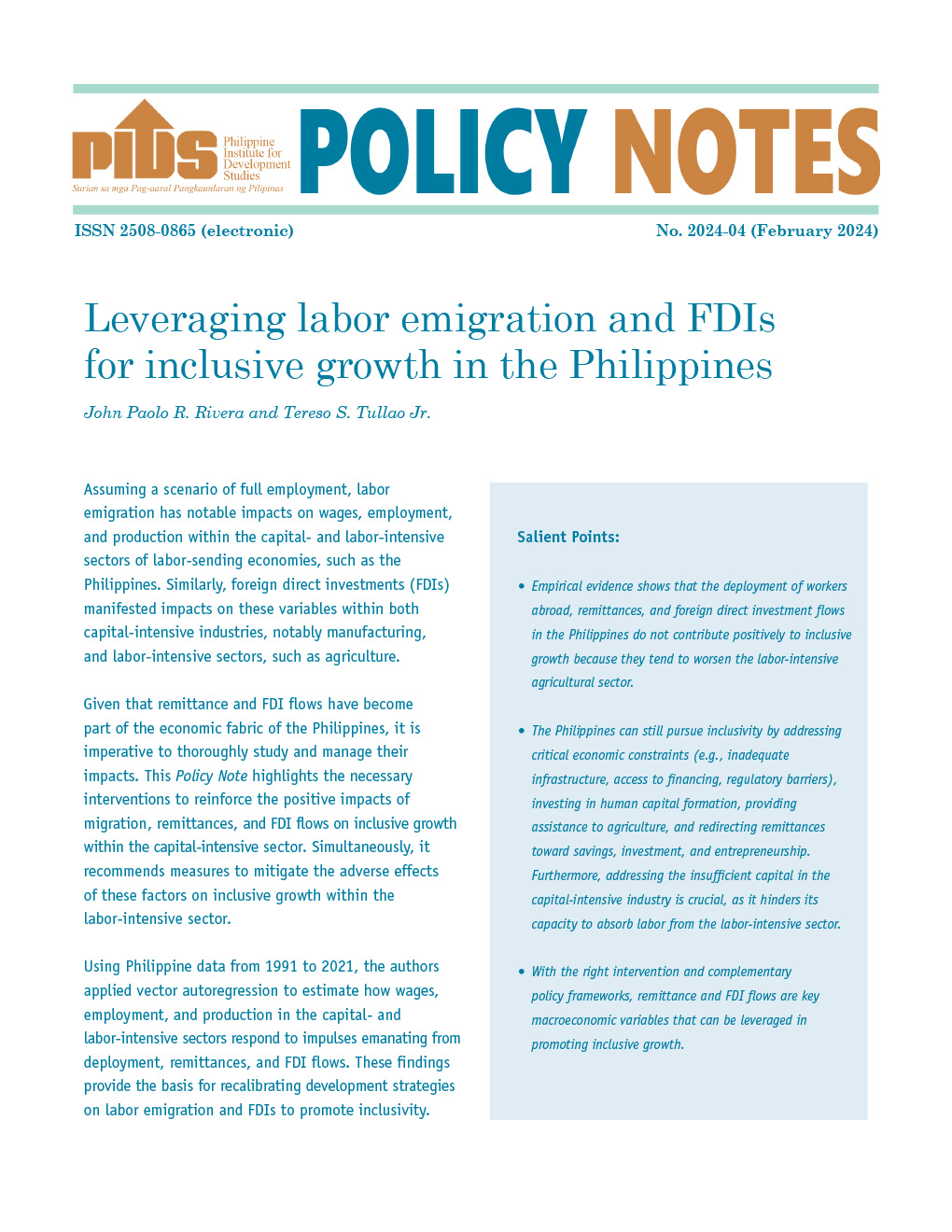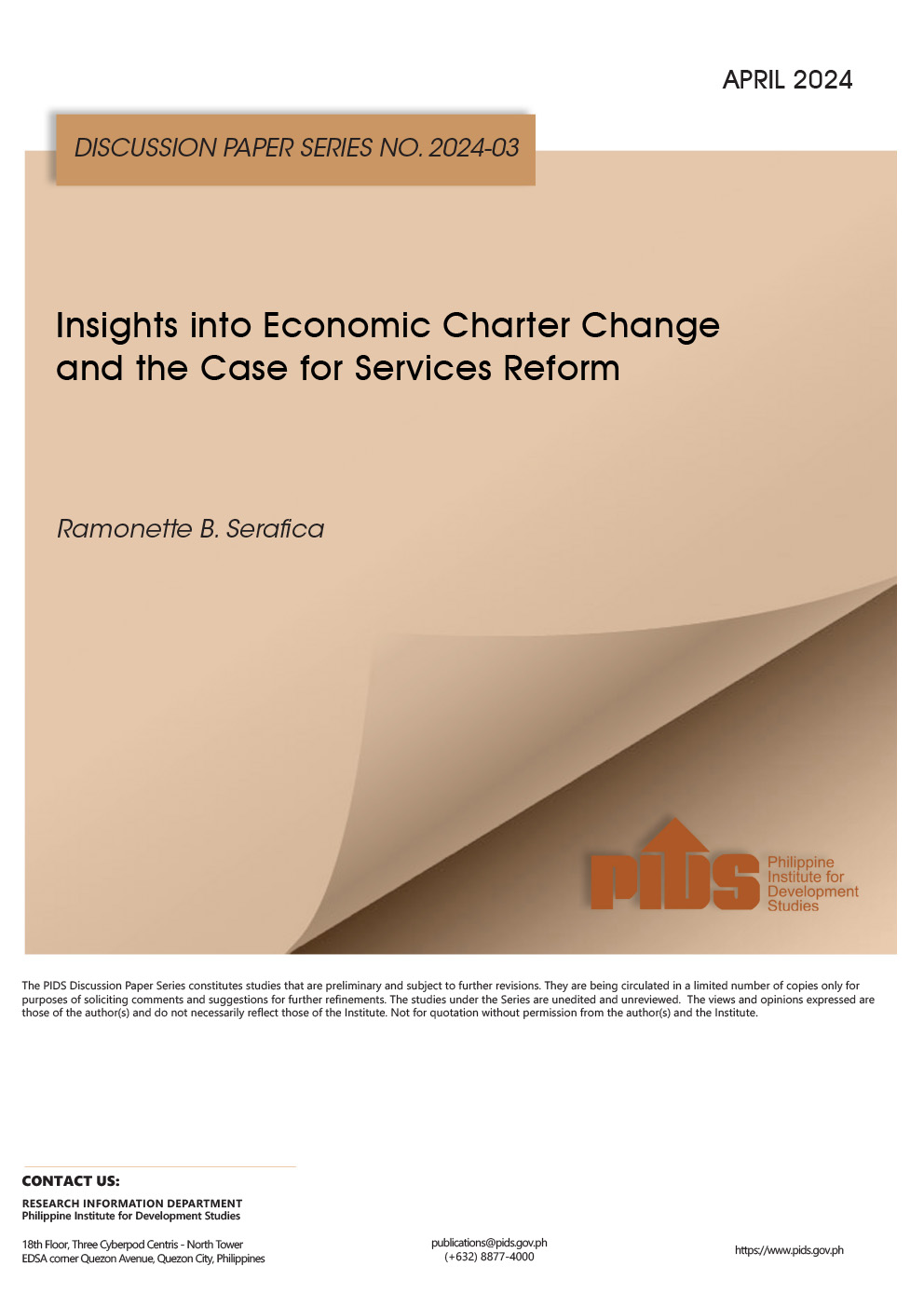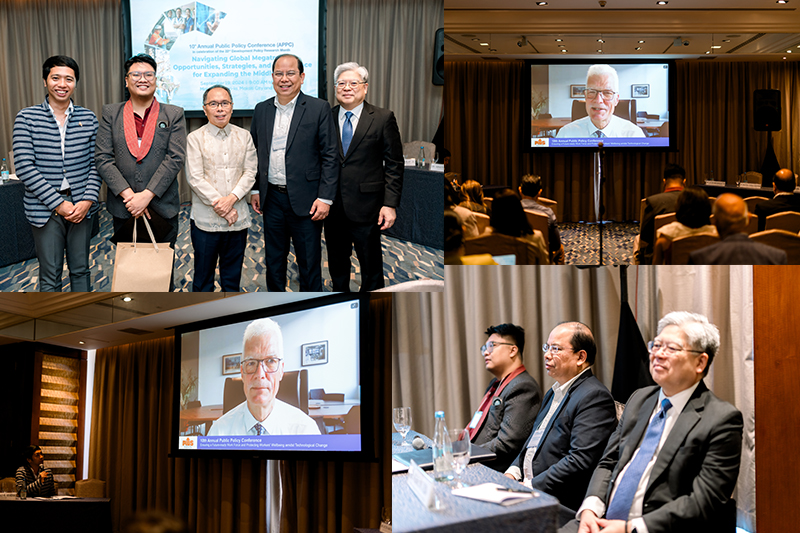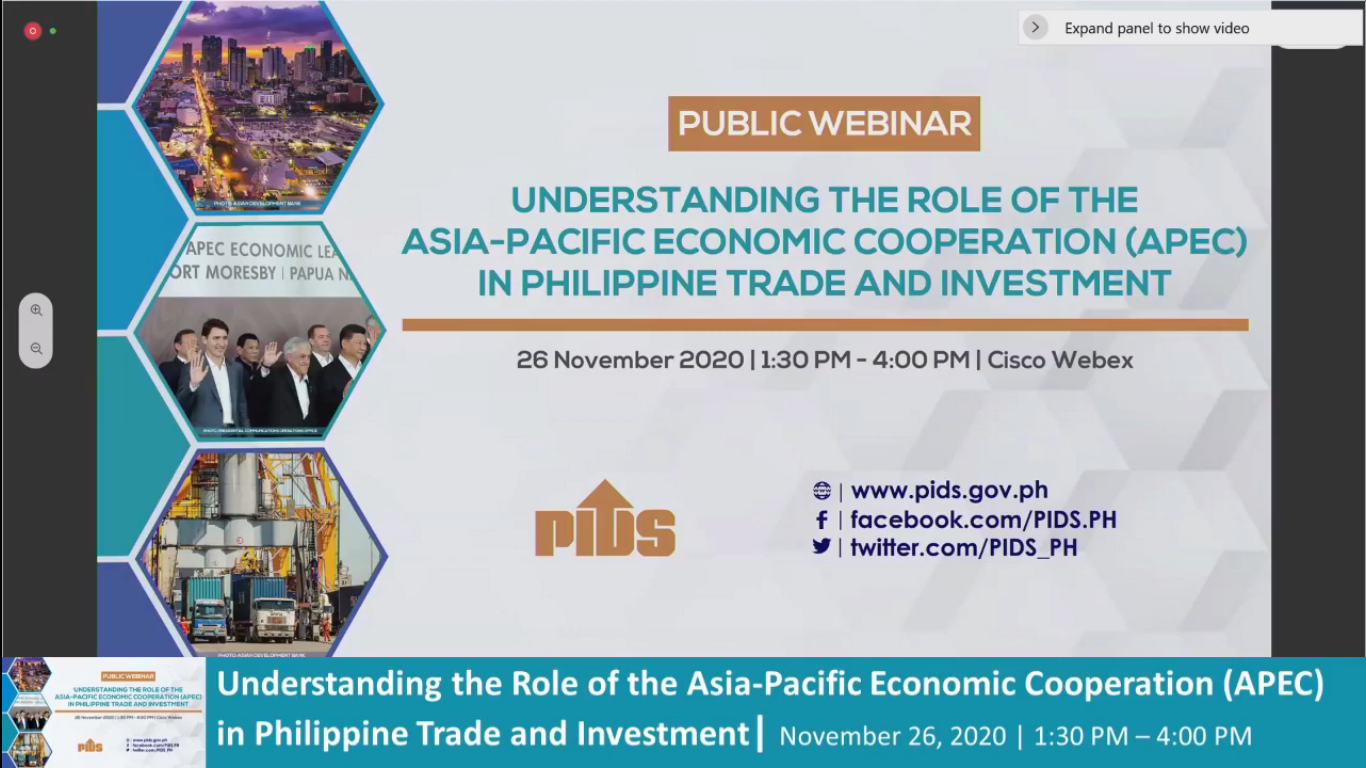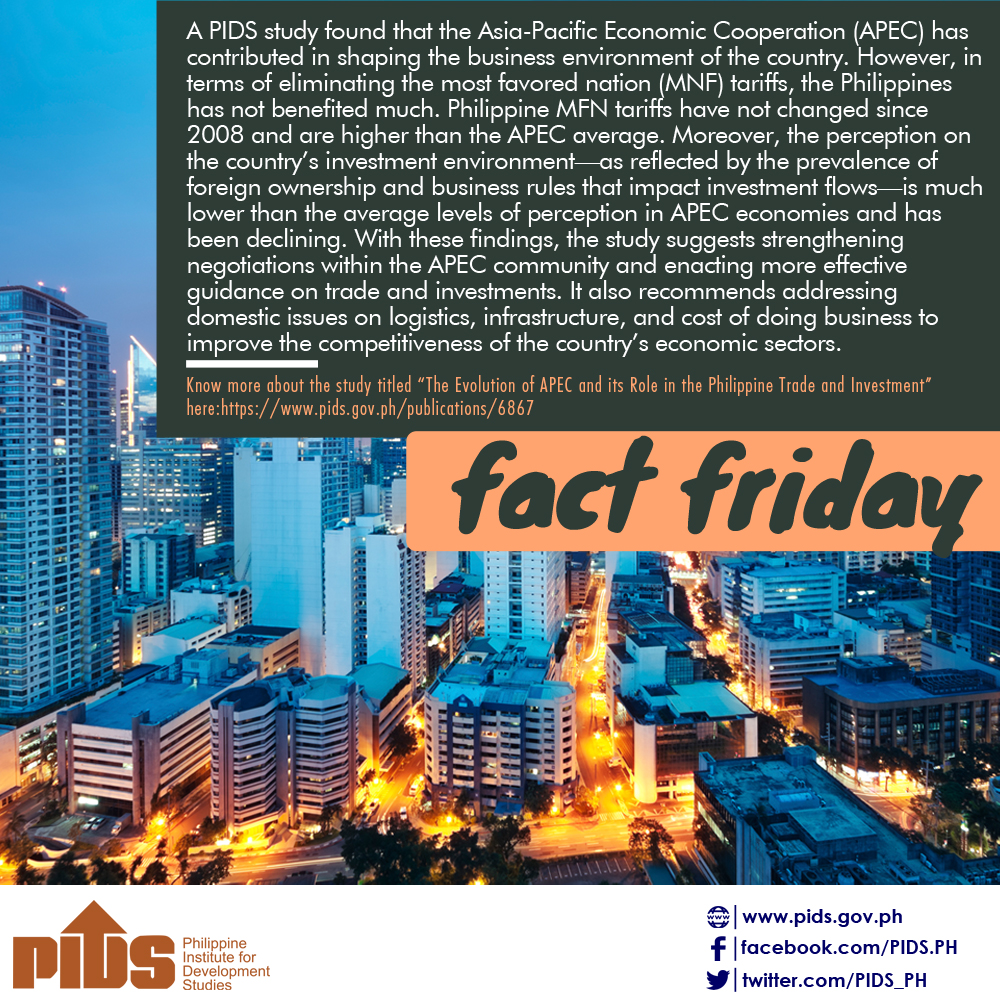The government should reform the tax incentive regime in the country and establish a single promotion agency to handle all foreign and local investments, government think tank Philippine Institute for Development Study said Wednesday.
"I’d rather have one [incentive giving body] for efficiency and consistency. They [foreign investors] better talk to one for uniformity of procedures and standards,” Philippine Institute for Development Studies president Gilberto Llanto said during the launching of the United Nations Conference on Trade and Development 2015 World Investment Report Wednesday.
Llanto said unlike other Southeast Asian countries with only one incentive giving body, locators in the Philippines had to talk to different incentive promotion agencies.
"Secondary is that locators do some forum shopping because there are different investment granting bodies, so they try to extract the most,” he said.
He said to attract more foreign investors, the government tended to give more incentives resulting in higher tax responsibilities for its people.
The government currently has seven investment promotion agencies, including the Board of Investment, Clark Development Corp., Philippine Economic Zone Authority, Subic Bay Metropolitan Authority, Authority of the Freeport Area of Bataan, BOI-Autonomous Region of Muslim Mindanao and Cagayan Economic Zone Authority.
The UNCTAD report showed the Philippines was among the ninth largest foreign direct investment recipient in East and Southeast Asia last year, after attracting $6 billion worth of foreign direct investments.
China remained the top recipient of FDIs in 2014, with inflows of $129 billion, followed by Hong Kong with $103 billion. Singapore received $68 billion; Indonesia, $23 billion; Thailand, $13 billion; Malaysia, $11 billion; and Vietnam, $9 billion.
"Outward FDI from developing economies increased by 23 percent in 2014, to $468 billion. In contrast, net investment by developed countries was flat, primarily because a large expansion in cross-border mergers and acquisitions by some developed country multinational enterprises was offset by large divestments by others,” UNCTAD said in the report.
"FDI outflows from transition economies fell by 31 percent to $63 billion as natural-resources-based MNEs, mainly from the Russian Federation, reduced their investment abroad,” it said.

